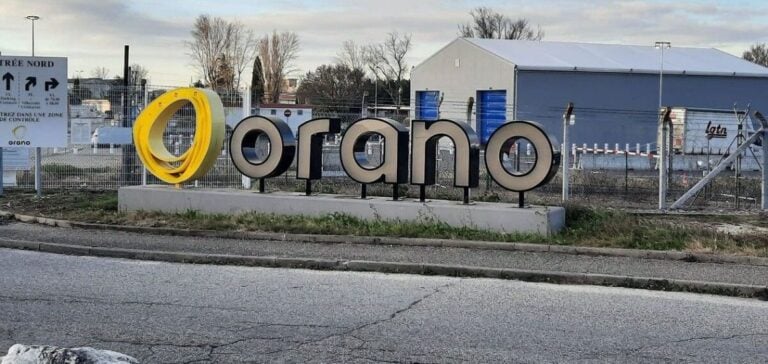The project sealed between Orano and the Mongolian authorities concerns the extraction of a deposit located in a region rich in uraniferous resources. Negotiations, initiated several years ago, resulted in a commitment providing for a total investment of 1.6 billion dollars. The first operations should mobilize 500 million dollars in order to build the necessary facilities and initiate production. Sector analysts see it as a large-scale partnership that could redefine the global uranium supply map.
According to official information, this deposit contains around 90,000 tons of resources, placing it among the most significant reserves discovered by Orano. French officials emphasize the desire to secure the supply of nuclear fuel for France, while highlighting the possibility of selling this strategic material to other operators. The first extracted volumes could reach 2,500 tons annually, representing a notable share of the national nuclear fleet’s consumption. Experts mention an exploitation spanning several decades, reinforcing the economic importance of the agreement.
An Ambitious Mining Pact
The Zuuvch-Ovoo site, identified by the company’s geologists, has undergone in-depth technical evaluations. The Mongolian authorities have given their approval to a legislative framework allowing the installation of modern infrastructures and the creation of specialized local sectors. This perspective includes the participation of Badrakh Energy, a joint venture bringing together Orano and the public operator MonAtom, the latter being officially mandated to manage national interests in the nuclear field. The authorities hope this collaboration will generate a transfer of expertise and an industrial impetus that benefits the local economy.
Orano, majority-owned by the French State, sees in this agreement an opportunity to strengthen its position in the global uranium market. Formerly known as Areva, the company seeks to diversify its supply sources to anticipate potential geopolitical or regulatory fluctuations. Electricité de France (EDF) is one of its historical customers, but the shipments extracted in Mongolia can also be offered to other power plants worldwide. Those in charge of the project, however, stress the need to meet strict criteria in terms of quality and safety.
Strategic Implications
Landlocked between China and Russia, Mongolia has long relied on its copper and coal production to support its growth. Turning to uranium is a strategic choice aimed at increasing the added value of its mining exports. Local specialists are counting on the creation of highly qualified jobs, both in extraction activities and in associated services. This development could redefine Mongolia’s status as an international supplier of energy minerals.
Official authorities describe the signing of this agreement as a decisive step, referring to a “historic” project for the nuclear sector. Several documents published by Mongolian representatives highlight the depth of this bilateral cooperation. The country, wishing to avoid excessive dependence on its neighbors, values the involvement of a foreign player recognized for its expertise. The stated ambitions include the implementation of demanding standards, in order to limit environmental impact and respect high safety requirements.
Control and Compliance
On the legal front, Orano Mining has already committed to strengthening its internal procedures following a suspected corruption case involving the former Areva. As part of an agreement with the judicial authorities, a fine was paid and a compliance program was launched to ensure transparency of operations. The Mongolian agreement will therefore receive particular scrutiny, with the involvement of independent experts tasked with ensuring that the rules imposed by the French Anti-Corruption Agency are followed. Observers believe this approach could bolster the company’s reputation on the international stage.
Mongolian administrations have also announced their intention to closely monitor the potential environmental consequences. The treatment of radioactive residues and the management of water flows are among the key points, accompanied by specific commitments to protect local populations. Project managers affirm that advanced technologies will be deployed, in compliance with the requirements defined by the competent authorities. Several stages of technical validation and industrial follow-up are already planned, reflecting the shared desire to ensure a responsible exploitation framework.






















